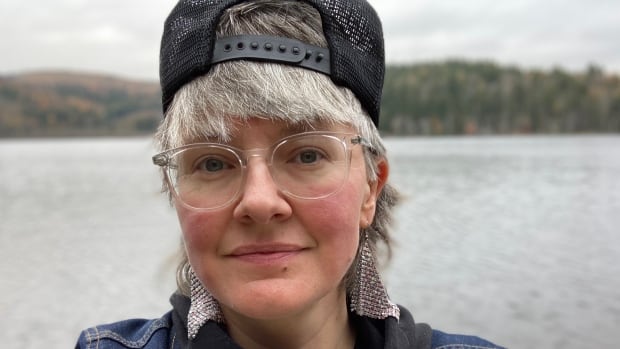This is an Opinion piece written by Tanya Davis, a writer and interdisciplinary artist living in rural Epekwitk and P.E.I.’s new poet laureate. For more information about Opinion stories, see the FAQ.
Growing up in a small town before the internet, I took some of my earliest assumptions about work and adulthood from illustrated children’s books. In the classic (and colonial and misogynistic) volume Fun With Words, Richard Scarry featured a lot of teachers, doctors, and firefighters. There were no poets.
By the time I was set to graduate high school, writing was clearly an interest and a strength of mine, but it wasn’t encouraged as a profession, or even suggested. I headed to university to study English, so I could teach it in the days and write it on the weekends, a good citizen doing my part.
Society is a complex tangle of relationships that can’t be summarized in an old picture book. Thankfully, we continue to broaden our collective views on what constitutes a worthwhile role to play, a valid profession to pursue. Even so, I’m not convinced that being an artist is widely considered a strong career choice these days, or that pursuing poetry would be suggested to a high school graduate with a passion for words.
I think poetry is overlooked because of its reputation which, in certain corners of the world and the job market, is as outdated as a Richard Scarry book. Poetry has a marketing problem, and that’s lovely in a way, since poetry is about honesty, the antidote to marketing. But it doesn’t help affirm its value in society.
A greater role to play
The work of a poet goes beyond finding rhyme and penning verse. In my view, poetry is the act of observing and reporting back. We hold up mirrors to reflect the world we live in. Poetry can illuminate the lessons that need teaching, the ailments that need fixing, and the fires that need putting out.
My artistic journey has been meandering and eclectic and, through it all, poetry has been there, behind the scenes, reminding me of its merits while infusing all my work. I love many things about it — the countless ways that words can be arranged in service of cadence and rhythm, the joy of reaching for a thesaurus to find a fitting synonym, the endless selection of subjects to explore. What I love most though is how poetry offers an opportunity to communicate, that is, to connect.
Granting artists opportunities to present their work is a good first step. Inviting artists to the table to contribute to the work from the ground up is an even better one.– Tanya Davis, P.E.I. poet laureate
I believe this is a valuable contribution to society, whatever that society might look like. In fact, I think we have an even greater role to play. Our communities should look to us for our ideas, seek out our unique views and experience. Governments and leaders, educators and policymakers should seek our counsel. And we should be compensated for our time and expertise because our skills are hard-earned and our perspectives are valuable.
Poet laureate programs are one way we can employ poets to address matters relevant to local communities, as are initiatives like Poetry City, where municipal councils invite poets to speak in council chambers and other public spaces. Granting artists opportunities to present their work is a good first step. Inviting artists to the table to contribute to the work from the ground up is an even better one.
We may not be adequately represented in some of those formative picture books, but as participants in society, we are definitely here.


